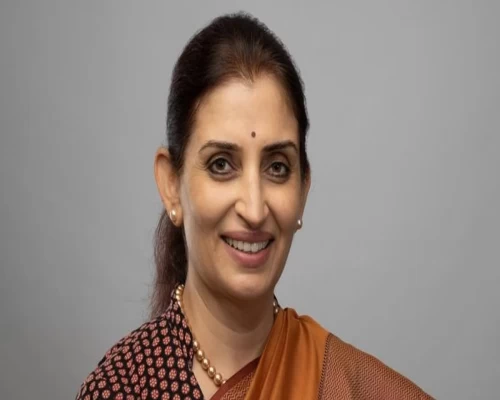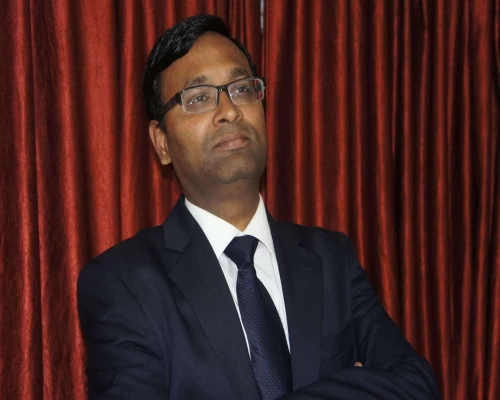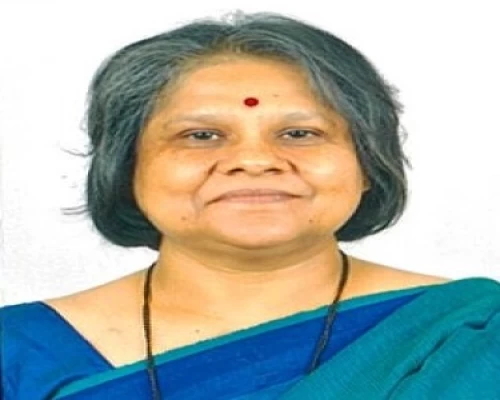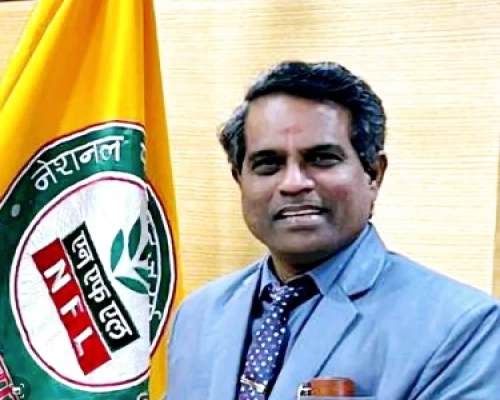
An IPS officer of 2013 batch of Maharashtra cadre, Harssh has been instrumental to many successful initiatives regarding policing. He loves the idea of constructive criticism. “India as an aware and rich democracy is able to criticize bureaucracy, which I think is a very positive change. It ensures the bureaucracy as an institution stays in tune with the changing times,” Harssh tells Sweta Bharti of Bureaucrats India in an exclusive interview. Here go the excerpts:
How is Harssh Poddar the lawyer different from Harssh Poddar the IPS?
I was working as a commercial lawyer. It was a very coveted career and very remunerative as well. It was, however, not something that I was looking for in my career. The kind of fulfilment the job of an IPS officer offers is unparalleled. You can touch millions of lives as an IPS officer, which gives you immense satisfaction. You are under constant scrutiny, under a lot of personal scrutiny in terms of what you are saying, what your mindset is and how you are perceived by the public. This feedback mechanism from the society is something that is consistent, which was not in my previous career.
Equally satisfying is the versatility which comes with the job of an IPS officer. As a lawyer or a corporate lawyer, you are the expert of a particular domain. I may know a lot about commercial laws, rules, and regulations. As an IPS officer, I can’t say that I am the master of one domain. You have to be aware of millions of other things happening in your country, state, district, village, etc., all of which will have a direct impact on the maintenance of law and order. You have to understand geography, economy, caste and religious discourses. All this has added a lot to my level of awareness and knowledge as compared to what I had earlier.
One more thing I would like to talk about here is what I have learnt first as a lawyer and now as an IPS officer. As an IPS officer, I have a wide and varied area to deal with the society. I have a vast amount of public interface. As a lawyer, you deal with a certain section of the society but as an IPS officer, you need to deal with the most powerful section of the society as well as the ones with limited resources. The cross section of society that I deal with has changed a lot and consequently my understanding of the people as well.

Notwithstanding all respect Indian bureaucracy enjoys, there are several media articles questioning the purpose of existence of this institution. What’s your take?
One needs to be able to distinguish between an individual and the institution. Of course, institutions need to change. India as an aware and rich democracy is able to criticize the bureaucracy, which I think is a very positive change. It ensures that the bureaucracy as an institution stays in tune with the changing times. It is also a healthy sign of democracy. I don’t think bureaucracy should be a sacrosanct institution which can’t be questioned. I believe if you have power, you have accountability and responsibility as well. I know that bureaucrats are an easy target, because bureaucrats don’t respond to criticism. So they are like sitting ducks. You can get away with saying whatever you like. Still I am in favour of healthy criticism, but we need to stop targeting an individual or worshipping him as a hero.
Uniform instils a sense of fear among people. How do you deal with it? Has it ever been a problem for you?
The police are a unique department in many ways. It operates like a double-edged sword. Police are supposed to do crime control and deal with criminals and take strong actions against them so that they are fearful of you. One cannot do away with that part of the job. But criminals ultimately constitute a very tiny part of the society. Police are also an institution to protect the rest of the society, which constitutes 99 per cent of the society. There is no denying the fact that there have been several instances of police atrocities but there are thousands of good things that Indian police do, for instance, the magnitude of works, which were done by Indian police during Covid-19 pandemic and CAA protests. As an IPS officer I try my best to ensure human touch is retained while discharging our duties and responsibilities. Of course there are mistakes that police have made but we try to identify and rectify them. People also need to be cognizant of the good work that police do. We need to be very objective while doing critical appraisal of the police.
Would you like to share some experience?
Yes, I have had a chance to interact with the people in Nagpur, the second capital of Maharashtra, Beed, Aurangabad, communal hotspots like Malegaon and at all these places people are more than willing to understand the police. As long as your story is backed by concrete facts and actions, people are willing to listen to you.
We have movies like Singham, portraying police in different forms. Do you think these films fail to showcase the real job of police properly?
I am a very strong critic of the way police are shown in popular media for good and bad reasons. In most cop centric movies, the police as a multifaceted institution are not projected. They are shown as a pro-violence force, fighting for right. The entire projection is so convoluted that the true character of the police is lost. This is a wrong way to project any law enforcement agency let alone police. In reality, things are not like that at all. If you look at characters like Singham, the biggest virtue he possesses is that he is honest and he can thrash anyone, who doesn’t agree with him. It is like law, law enforcer, court – everything rolled into one, which is ridiculous. That is a wrongful depiction of police. Only correct depiction of police that I have seen so far was a TV show on Doordarshan during my childhood – Udaan. It was the story of a woman IPS officer, who deals with several real life issues like caste, local crimes, and dowry. That was I think a very thoughtful and insightful depiction of the police but hardly such artwork is made now.
Do such movies create extra pressure on police?
I don’t think so. It is the people who add pressure. The problem is self-image realisation. Even policemen start to think that is how they should be because that is what gets clap from the people. If the police force is well aware of how they should function, then I don’t think it will mean much to them.
What has been the most gratifying moment of your service so far?
When I was posted in Malegaon, I and my team were able to rescue five people from the mob. I truly felt grateful because this whole thing could have gone wrong in so many ways. Police man could have been killed let alone that family. Even the people could have been killed because if the push came to shove, we would have had to fire. At the end, the family was safe. Policemen were not seriously injured. No one in the crowd was killed from our side. I am very grateful for that. It doesn’t say anything about my competence. I was very lucky as well because many such operations go wrong in many ways.
This was the first time you were dealing with a mob lynching incident?
Yes, I have dealt with mobs before but this was a very sensitive incident because a mob was out there to kill in an organised way, not to riot. This was far more serious than a general law and order outrage.
Were you scared at that moment?
Yes, of course. I would be lying if I said not. But the IPS training teaches you to keep your senses even in the crisis situation.
What is this IPS training like? What all things do they teach you?
When you enter the National Police Academy, the first thing you see is the huge marvel boulder, which is right from the gate on which is written: “Michelangelo was once asked how you create such a life like sculpture. To which, he answered – Every block of stone has a statue inside it and it is the task of the sculptor to discover it.” That is the philosophy of the academy.
The academy pushes you beyond your comfort zone, things you never dreamt you were capable of doing, you suddenly start doing those. That is crucial for policing because for policing you don’t know what crisis you will face next. You should be able to react to any situation in a calm manner. There is a quote of Sardar Vallabhbhai Patel, which comes to my mind: “No matter what the situation is. I urge you to keep your cool because once you lose your cool, you are no longer a policeman.”
Where was your first posting? What was that experience like?
It was Aurangabad as an assistant SP. It was my first long term exposure to rural India. I grew up in the city. During training there was a brief period that you spent in the village but you never really lived there. It was the first time that I got a chance to understand how rural India works. Something like caste which urban people are so unaware of is very important in rural India. I got to understand how the economy affects law and order. And you learn to communicate in very different matters. You also try to get yourself accepted. It is important that they understand you and they are able to accept you.
I always enjoyed the rural setting much more. It is closer to nature. I enjoy the fact that it is very personal. Having lived in London, I missed the fact that there is no community. People don’t know who their neighbour is. You are just another face walking down the street. But in rural settings, it is very different. The level of integration that exists in rural communities is amazing and of course the learning curve was amazing.
Journey of becoming an IPS officer is a difficult one. It takes a lot of grit and determination to reach where you are. Is the job worth all the pain? And if you could, will you do it again?
A big – Yes! I would do it a hundred times over! Even seven years of service, let alone a day even a second hasn’t passed when I regretted leaving my career in London.
How would you like to advise those who are preparing for UPSC exams?
Be strategic. This is the 21st century where the government services are not the only job. Many people opt for civil services without having a backup plan. Have a planned idea about how many times you will give the examination and have another option if you don’t clear the exam. There obviously is an element of luck and hard work associated with the exams. If you don’t clear it, there is definitely something better in store for you. It is, of course, a great job but it


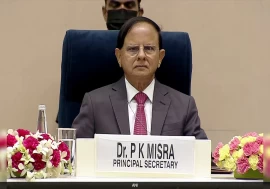
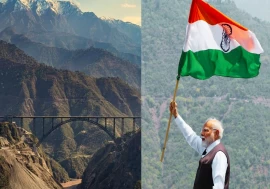
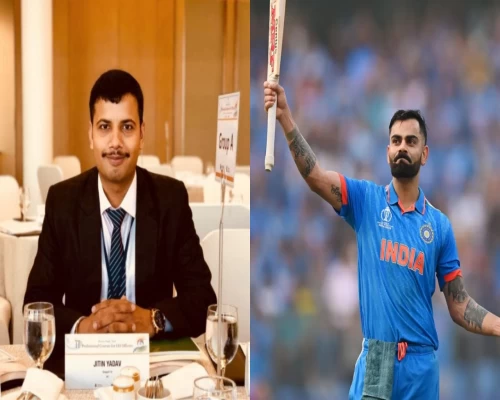
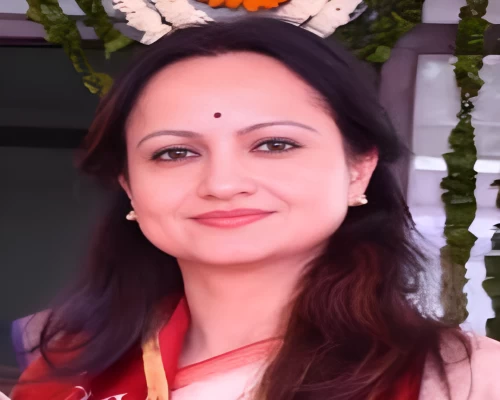
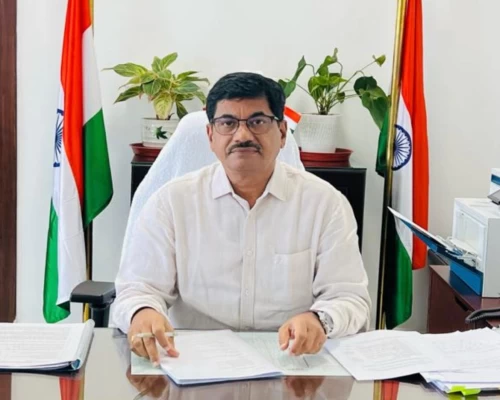
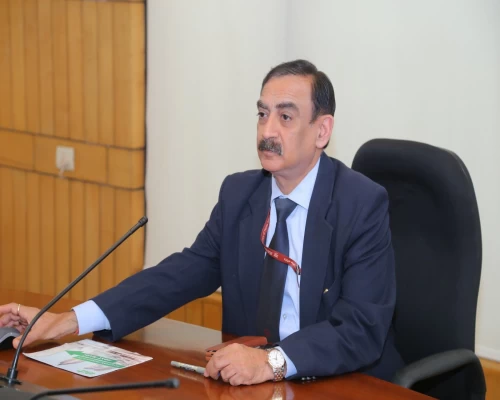
_500_x_400.webp)
